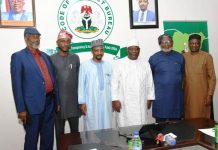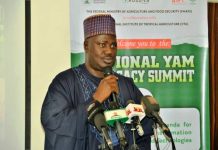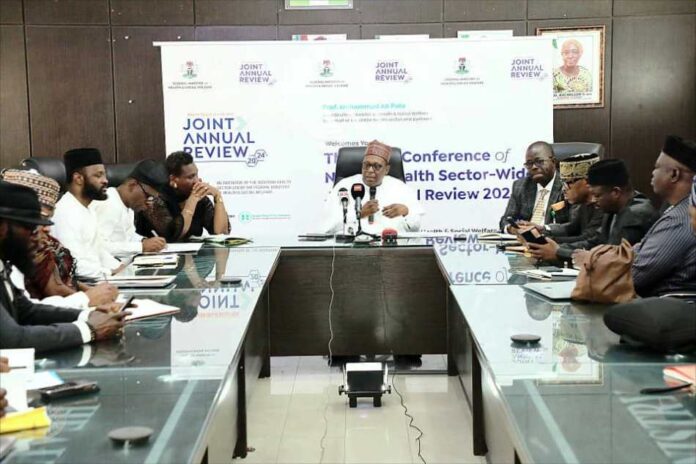
Prof. Muhammad Ali Pate Coordinating Minister for Health & Social Welfare has stated that the forthcoming Joint Annual Review JAR meeting will be an interactive forum for Stakeholders to deliberate, share information and, chart way forward that will improve the health sector.
”It is not passing judgement on us or on any state or any local government or any development partner, it is an interactive co- creation of the revamping of Nigerian health sector” .
The Coordinating Minister asserted during the Ministerial Press Briefing announcing the forthcoming Joint Annual Review meeting scheduled for 6-8 November 2024 in Abuja.
Retrospectively, Prof Pate said the journey to achieving the current positive results in the health sector began last year with the Federal Government signing a compact with the State Governments, Local Governments and development partners under the Sector Wide Approach SWAp strategy; to rejig and, improve the health sector for the benefit of Nigerians.
This approach, the Coordinating Minister stated, aligns with the Renewed Hope Agenda of the present administration; stressing, it’s being implemented diligently and, with vigour by the Ministry under its National Health Sector Renewal Investment Initiative NHSRII.
While highlighting the critical importance of the collective and collaborative approach, he said in the course of assessing the progress achieved so far, it is very imperative to consider performance indices using peoples’ perceptions survey. The response of more than 2,600 Nigerians to what they feel about the health system and it’s impact, according to the Coordinating Minister, has been increasingly positive.
“Because if you recall, the first pillar of the agenda is to improve governance and to orient the Nigerian health system to respond to the needs of Nigerians; which is the President’s Renewed Hope Agenda.” Prof Pate pointed out.
Looking ahead to next week JAR meeting, Prof Pate affirmed that stakeholders would consider various metrics and data on what has been achieved or not; how are we doing on the infrastructural upgrade and, the health security pillar of our agenda? Now with
the resource that we have raised, we need to look at where do we go from here in terms of other operational plans that have been developed by the States.
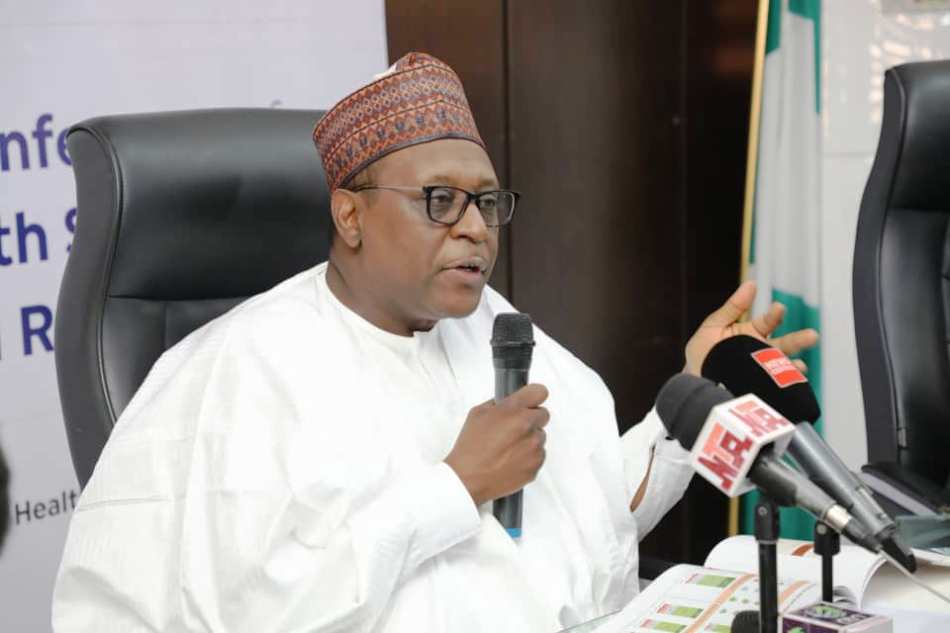
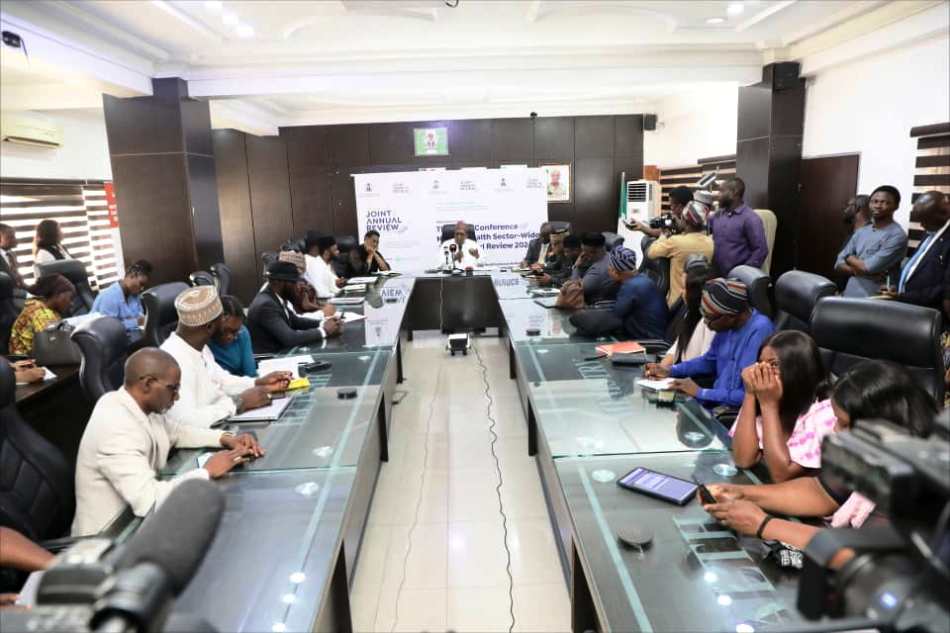
“Those are the kind of things that the Joint Review will interrogate by government, us, our teams that have been working very hard, our development partners, our partners in the state and local governments.
In reproductive, maternal, newborn and child health. Understanding where are women dying, what are we doing about it, how are we changing interventions? The retraining of Frontline health workers, how is it going? On HIV, TB and malaria, where are we?
On preventing mother-to -child transmission, where are we? On commodities, how is the situation of stock of commodities? how do we crush mortality, given where mothers are dying? Because we realize that mothers have risk of dying in Nigeria, not equally in all parts of the country. There are particular local governments, about 172 of them, which account for more than half maternal mortality.
So how do we target them, now that we have identified them? So let’s review it collectively with the best interventions that we can deploy”, the Coordinating Minister added.
Signed
Alaba Balogun
Head, Information & PR




